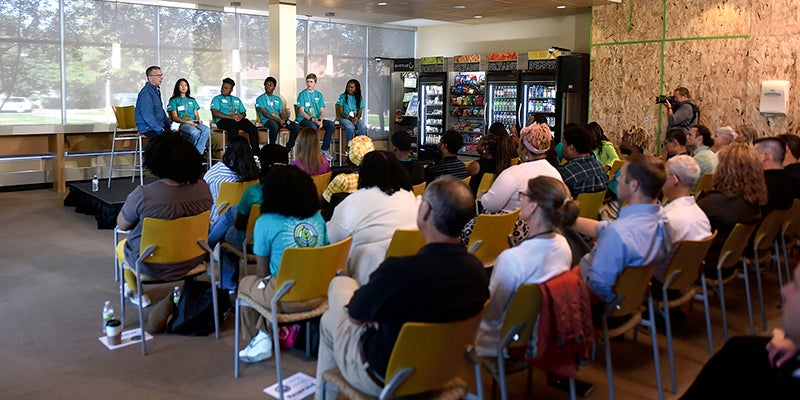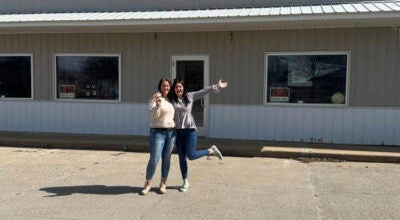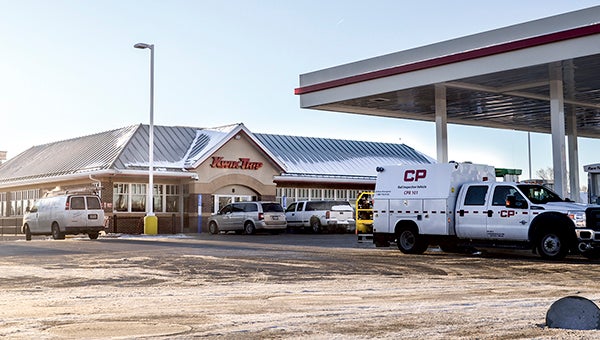Caribou drops artificial ingredients
Published 10:33 am Monday, March 13, 2017

- Caribou is dropping artificial ingredients from its drinks. Herald file photo
By Kristen Leigh Painter
Minneapolis Star Tribune
Caribou Coffee is cleaning up its act by offering beverages free of artificial colors, flavors and sweeteners.
The Brooklyn Center-based company has established a clean label standard for all beverages served at its U.S. locations, making it the first national coffeehouse to answer consumers distrustful of unrecognizable ingredients with such a wide-ranging guarantee.
“Almost all consumers are looking for, at least to some level, foods that are fresh, real and less-processed. That’s the holy grail for most consumers right now,” said Laurie Demeritt, chief executive of the Hartman Group, a consumer research firm focused on food and beverages.
According to a 2015 consumer survey by the firm, more than 70 percent of people say they read labels when shopping. The term “clean label” has no formal definition but generally describes the rejection of ingredients perceived to be bad.
Caribou has outlined on its website CaribouCleanDrink.com how it is defining the term. The company lists more than 70 ingredients forbidden in its drinks. High fructose corn syrup, partially hydrogenated oils and MSG are a few of them.
“It’s not just one or two pieces that we wanted to do,” said Jenifer Hagness, senior director of product innovation. “We are the hometown brand in Minnesota, but we are not the biggest in the [coffee] market. But our goal is to be the best.”
Caribou has been working on the clean-label endeavor for the last three years — reformulating, sourcing and testing the products. But the process began more than a decade ago when it started making incremental improvements in its supply chain.
Caribou was the first national coffeehouse to certify 100 percent of its beans with the Rainforest Alliance — a seal that assures certain environmental and social standards are met in the production of a product.
In 2010, Caribou replaced chocolate powders with real chocolate chips. The company picked up the pace in 2016, rolling out its real Madagascan vanilla, real caramel and real pumpkin.
The company is currently 91 percent of the way there. By the end of the year, all of Caribou’s drinks will meet the clean label standard. For now, Caribou’s food will not be included in the clean label guarantee.
Demeritt said food companies in the out-of-home food sphere — like restaurants and coffee shops — have actually led the industry on moving toward cleaner ingredients. Panera Bread and Chipotle were two of the early pioneers.
Caribou, which employs more than 5,400 people in the Twin Cities, said it emulated many of the standards established by Whole Foods Market.
“We initially modeled some of our ingredients off Whole Foods and have added to the list based on our segment [in beverages],” Hagness said.
Overhauling an entire menu is risky, experts say, because taste is still the biggest factor consumers consider when making purchasing decisions.
“How do we substitute with ingredients and get the same taste? Food science is not easy,” Hagness said. “We looked at every single ingredient going into our beverages to make sure it tastes like what they are supposed to taste like.”
For instance, to move away from its sugar-free flavor shots, which rely on artificial sugars, the company will use monk fruit extract, which can be used as a low-calorie sweetener.
These natural ingredients tend to be more expensive, Hagness said. Caribou will absorb much of that cost, but some of it may be passed on to consumers.
“There is definitely a higher cost associated [with the ingredients], but we are doing as much as we can internally right now to stay cost neutral apart from inflation,” she said.
—Distributed by Tribune Content Agency, LLC.





